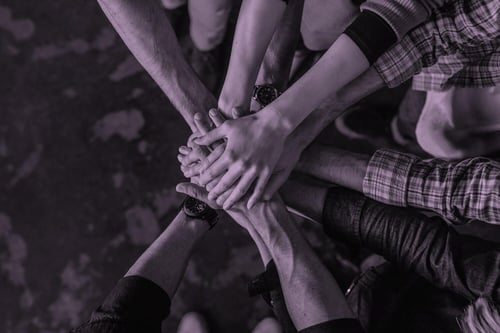The Pathway to Excellence | Live | Relational Development
Perceived Belonging And Social Standing
We need to build a robust and resilient sense of perceived belonging and social standing – how we recognise that we are connected to, bring value to, gain from, and are valued by our networks of family and friends for these contributions and the humanity we bring to others.

If we feel as though we belong and we know where we fit in, then we are more likely to fulfil our potential. If you feel as though we belong and are fulfilling our potential, we are more likely to do that which is good and right in our lives. If all of these are happening in our lives, we will feel as though we are developing in character and competency and making progress on the pathway to excellence. We will feel as though we are becoming accomplished and making our way in the world. And this is good for anyone!
It starts with belonging. We ended to know that we belong within our community. To do this, we need to be able to demonstrate that our values and actions align with those of the group. We need to make a conscious choice that these values and actions accord with our core beliefs about what is good and right. In other words, we need to be personally aligned with the group, what it stands for, and what it does not stand for. The group needs to fit our vision for what we want in our lives, at least in the short term and comprise people, culture, traditions and experiences who can help us to grow on The Pathway to Excellence.
At the same time, the group needs to approve of us. We need to demonstrate that we have earned a place amongst its ranks by virtue of our qualities and our virtues. This should not mean we need to be perfect, and we should question very seriously any process of initiation or any other requirements that compels us to act in a way that is dishonourable or which demeans other people. At the same time, while it is reasonable to expect people to be open, welcoming and hospitable to us, we should not anticipate that there will be a free pass for immediate entry.
“A person with ubuntu is open and available to others, affirming of others, does not feel threatened that others are able and good, for he or she has a proper self-assurance that comes from knowing that he or she belongs in a greater whole and is diminished when others are humiliated or diminished, when others are tortured or oppressed.”
Archbishop Desmond Tutu
Our acquaintances and colleagues will want us to demonstrate that we bring value to the group and that we respect what it stands for. In turn and over time, we will give our service and loyalty to prove that we are worthy of becoming a part of the whole. There will be an expectation that we will need to serve for some time before gaining entry and promotion within the group. Our fellows will be sources of friendship and advice, people who will give us guidance and mentorship with the expectation that we will pass this on to others also in due course.
Each member of the group will be recognised for what they bring and for their influence for the better or worse over others. This will give them a particular standing within the group. We need to be able to recognise and understand the nature of this standing, not only for the benefits that group membership will bring to us individually, but, most importantly, to bring us the knowledge that we have a place and that it has been earned. We are social beings and we construct networks and hierarchies naturally to describe the relationships we have with each other. Where we sit within the network or hierarchy is of importance as it helps us to define and keep to our sense of purpose according to the social functions we perform. This, in turn, helps us to see where we might grow and how we might learn and improve over time. It also encourages to honour our commitment to a moral code that sees us choose what is the decent and honourable thing to do, even if it is difficult.
Our perceived belonging and social standing is inherent to our humanity. It allows us to position ourselves in relation to others and to seek dignity in what we do and in the service we provide. It allows us to recognise that through contribution to others, we can transcend simply doing a job and take on a vocation to which we are called because it allows us to transform the lives of others for the better. In all of this, it does not say that anyone is better than anyone else. What it does do is help us to recognise that in coming to know who we are and earn our places, we are more likely to go on that journey from me to you to us that allows us to know how to answer the question: whose am I? If we have done what we need to do to make our mark and to measure up within the reciprocal relationships of the community, then we will know our value and the value we bring to others.
We can contemplate our Perceived Belonging and Social Standing by considering the following questions:
- Do I aspire to make a real contribution to the world around me?
- Am I motivated and invigorated by my sense of purpose and direction?
- Do I seek the company, acknowledgement, and support of friends, classmates, and others who want to accomplish great things?
- Am I inspired by the example of role models and high-performing individuals and follow their example to achieve my dreams and my purpose?
- Do I trust people in my life to be there to help me discover my purpose and direction and find my voice?







